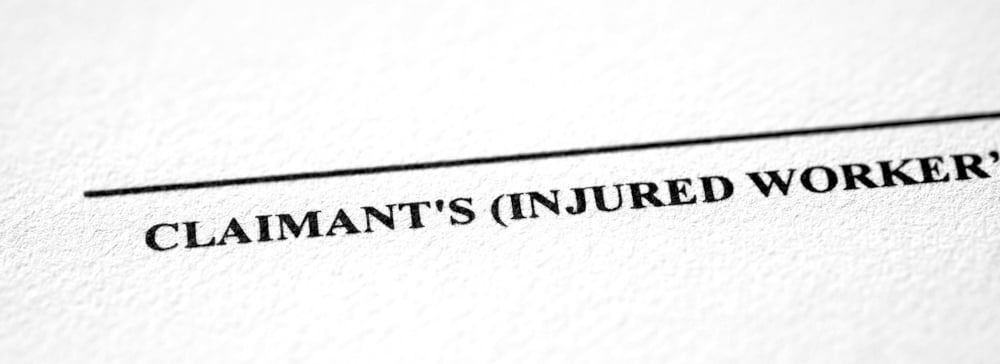Table of Contents
After suffering an on-the-job injury, you are counting on workers’ compensation to pay for your medical bills and replace part of your lost wages. Unfortunately, workers’ compensation denials are not uncommon. The good news is that you have the right to appeal the denial.
An appeal is often complicated and not something you should take on by yourself. Having legal representation can help you achieve the most favorable results.
A worker’s compensation lawyer at Kogan & DiSalvo reviews the reasons for the denial and can represent you in the appeals process. We fight so that you may receive the workers’ comp benefits you and your family depend on during your recuperation.

The reason for your workers’ compensation denial is stated in your Notice of Denial letter.
Resolving some workers’ compensation denials is relatively straightforward. Others are more complicated and will require a thorough investigation to prove your claim.
Before it can approve your claim, your employer’s insurance company must have documentation concerning the nature of your injury or illness and evidence that it is work-related.
If the insurer does not receive adequate documentation, such as a doctor’s statement or medical records, the claim will almost certainly be denied.
Providing proper documentation should reverse the denial of benefits.
Workers’ comp covers injuries that take place while on the job. The employer may dispute that the accident occurred while the employee was actually working.
For instance, if the accident happened when the worker was off the worksite during lunch, that injury does not qualify for workers’ compensation. However, if the accident took place away from the workplace but while the employee was working, that should qualify for workers’ comp benefits.
The employer may also dispute the seriousness of the injuries. The more severe the injury, the more medical treatment is needed. The more medical treatment required, the more insurance premiums rise. The employer may allege that you were not injured seriously enough to need medical treatment or take time off work.
Then there are those employers who dispute virtually every workers’ comp claim filed by an employee in the hope that the injured worker will just give up. These workers should obtain legal counsel.

Keep in mind that it is advantageous to employers and their insurance companies to deny workers’ comp claims. One of the favorite tactics is alleging that the injury was not work-related but due to a pre-existing condition.
If a worker has been diagnosed with any chronic condition or has a history of back issues or similar problems, it is likely the insurer will argue the injury was pre-existing and unrelated to the employee’s job.

Under Florida law, an injured employee has no later than 30 days from the accident date in which to report their injury or 30 days from the date in which the doctor states the injury or illness is work-related. Failing to report your injury or illness by this due date may cause denial of your claim.
The injured worker must also file their workers’ compensation claim within that 30-day period.

To win your appeal, you must present the strongest possible evidence. Without strong evidence, a worker is at risk of not only losing their appeal but, in a worst-case scenario, may be suspected of filing a fraudulent claim.
Your attorney will help you collect the evidence necessary to prove your claim. That may involve consulting medical experts or showing that you were engaged in work activities at the time of the injury. The evidence necessary depends on the particular circumstances of your claim.

Before filing a formal appeal, your attorney can conduct informal negotiations with your employer to resolve the dispute.
If that approach is unsuccessful, the next step is filing a Petition for Benefits with the Office of Judges Compensation Claims (OJCC). Generally, you must file the Petition for Benefits within two years of the accident date.
The petition outlines your claim’s details as well as the denial. The specific workers’ comp benefits you seek are also included. After receiving the petition, the OJCC notifies your employer about the appeal, and your employer must reply within 14 days with either a claim approval or a response to the OJCC.
If the claim is not approved, the next step is mediation within 130 days of filing the petition. A third-party mediator works with both parties to attempt to resolve the situation.
If mediation does not work, a pre-trial hearing is set before the OJCC. The final hearing takes place within 90 days of the pre-trial hearing. The OJCC judge makes a decision within 30 days of the final hearing.

If your workers’ compensation has been denied and you need help with a workers’ comp appeal, schedule a free, no-obligation consultation with an experienced Lakeland workers’ compensation denial attorney today. We serve all of Polk County.
If you are injured and unable to come to us,
our attorney will come to you - there is no charge for us to do so.